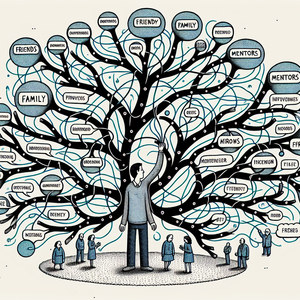Breaking the Stereotype: Women in Software Quality Assurance Engineering

Women have historically been underrepresented in technology, but in recent years, more women have entered the field of software quality assurance. QA engineers play a vital role in the software development lifecycle, ensuring that products are reliable, user-friendly, and meet the highest quality standards. Women in this field bring unique perspectives and skills that enhance the testing process, helping to create better products that resonate with diverse user bases. For instance, women in QA often excel in areas such as usability testing, where understanding user experience is paramount. Their ability to empathize with users allows them to identify potential issues that may not be immediately apparent to their peers. This is crucial in an age where software applications cater to an increasingly diverse demographic.
Challenges Faced by Women in QA
Despite the progress that has been made, women in QA still face various challenges. The tech industry is often characterized by a culture that can be unwelcoming to women, leading to feelings of isolation and imposter syndrome. According to a study by AnitaB.org, women represent only 26% of the computing workforce. This disparity can create barriers for women who are trying to establish themselves in technology roles. Moreover, women in QA often find themselves in environments where they must prove their competence in a male-dominated field. This pressure can be exacerbated by stereotypes that suggest women are less technical or less capable in software engineering roles. A survey conducted by the National Center for Women & Information Technology revealed that women frequently encounter biases that undermine their confidence, making it even more challenging for them to advocate for themselves and pursue career advancement. These challenges highlight the importance of creating supportive environments where women can thrive and contribute fully to their teams. Organizations need to actively promote mentorship programs and create spaces where women can share their experiences and learn from one another.
Inspirational Stories of Women in QA
Several women in the QA field have carved out successful careers, serving as role models for others looking to enter the industry. For instance, one QA engineer, Sarah, transitioned from a background in education to software testing. She discovered her passion for technology through a coding boot camp and has since excelled in her role, advocating for better testing practices and mentoring other women in her organization. Sarah’s journey illustrates how transferable skills can be leveraged in the tech industry, encouraging women from diverse backgrounds to pursue careers in QA. Another inspiring figure is Maria, who has been a QA engineer for over a decade. She emphasizes the importance of continuous learning in her career, often attending workshops and conferences to stay updated on the latest testing methodologies and technologies. Maria believes that her unique insights as a woman in tech allow her to identify user experience issues that might be overlooked by her male counterparts, ultimately leading to more successful products. Her dedication to professional development serves as a testament to the value of lifelong learning in the tech field. These stories reflect a growing movement among women in QA, who are not only overcoming challenges but also actively contributing to the evolution of the field. Their experiences illustrate the need for greater representation and the importance of fostering an inclusive culture within technology.
The Importance of Diversity in Technology
Diversity in technology is not just about equity; it drives innovation. A study by McKinsey & Company found that companies with higher diversity levels are more likely to outperform their less diverse counterparts. This is especially true in QA, where understanding a diverse user base is crucial for creating products that meet the needs of all customers. By incorporating more women and diverse voices into QA teams, companies can enhance their testing processes, leading to improved product quality and user satisfaction. Furthermore, organizations that prioritize diversity benefit from a broader range of perspectives, which can lead to innovative solutions and approaches in software development. For example, companies like Microsoft and Google have implemented diversity-focused initiatives that have not only improved their workplace culture but have also positively impacted their product development processes.
As we navigate an increasingly digital world, the contributions of women in software quality assurance engineering are more critical than ever. By breaking stereotypes and overcoming challenges, these women are not only enhancing the quality of software products but also paving the way for future generations of female engineers. It is essential for the tech industry to continue fostering inclusive environments that celebrate diversity and empower women to thrive in QA roles. By doing so, we can ensure that the technology of tomorrow is built by a diverse group of innovators who understand and cater to the needs of all users. The journey of women in QA is a testament to the power of diversity and the positive impact it can have on technology and society as a whole.
Automation QA Engineer
Amazon, Microsoft, Facebook
Core Responsibilities
Design and implement automated test scripts using tools like Selenium, TestNG, or JUnit to streamline the testing process.
Collaborate with development teams to integrate automated testing into the CI/CD pipeline.
Analyze test results and provide detailed reports on software performance and quality.
Required Skills
Proficiency in programming languages such as Java, Python, or C#.
Experience with test automation frameworks and tools.
Strong analytical and problem-solving skills.
Performance Test Engineer
IBM, Cisco, Oracle
Core Responsibilities
Conduct performance testing to assess application scalability, stability, and responsiveness under varying load conditions.
Identify performance bottlenecks and work with development teams to optimize application performance.
Develop performance test plans and document findings for stakeholders.
Required Skills
Expertise in performance testing tools such as LoadRunner, JMeter, or Gatling.
Familiarity with network protocols and application performance monitoring tools.
Strong understanding of software architecture and design principles.
Mobile QA Engineer
Spotify, Uber, Airbnb
Core Responsibilities
Test mobile applications across different devices and operating systems to ensure functionality and user experience.
Create test cases based on user stories and functional requirements specific to mobile platforms.
Collaborate with UX/UI designers to ensure that the app meets user interface guidelines and provides a seamless user experience.
Required Skills
Experience with mobile testing tools like Appium, Espresso, or XCUITest.
Understanding of mobile development frameworks and technologies (e.g., React Native, Flutter).
Strong attention to detail and an ability to think from the user's perspective.
Usability Tester
Adobe, Shopify, Salesforce
Core Responsibilities
Conduct user testing sessions to gather feedback on software usability and user experience.
Analyze user interactions and provide actionable insights to improve design and functionality.
Work closely with product managers and designers to advocate for user-centered design practices.
Required Skills
Strong understanding of user experience principles and methodologies.
Experience with usability testing tools and software, such as UserTesting or Lookback.
Excellent communication skills to convey findings effectively to stakeholders.
QA Lead/Manager
Google, Accenture, Deloitte
Core Responsibilities
Oversee the QA team, ensuring that testing processes align with project goals and quality standards.
Develop and implement testing strategies, plans, and metrics to improve software quality.
Mentor and train team members, fostering a culture of continuous improvement and knowledge sharing.
Required Skills
Proven experience in QA management, with strong leadership and organizational skills.
Knowledge of various testing methodologies and tools (both manual and automated).
Excellent stakeholder management and communication skills.


